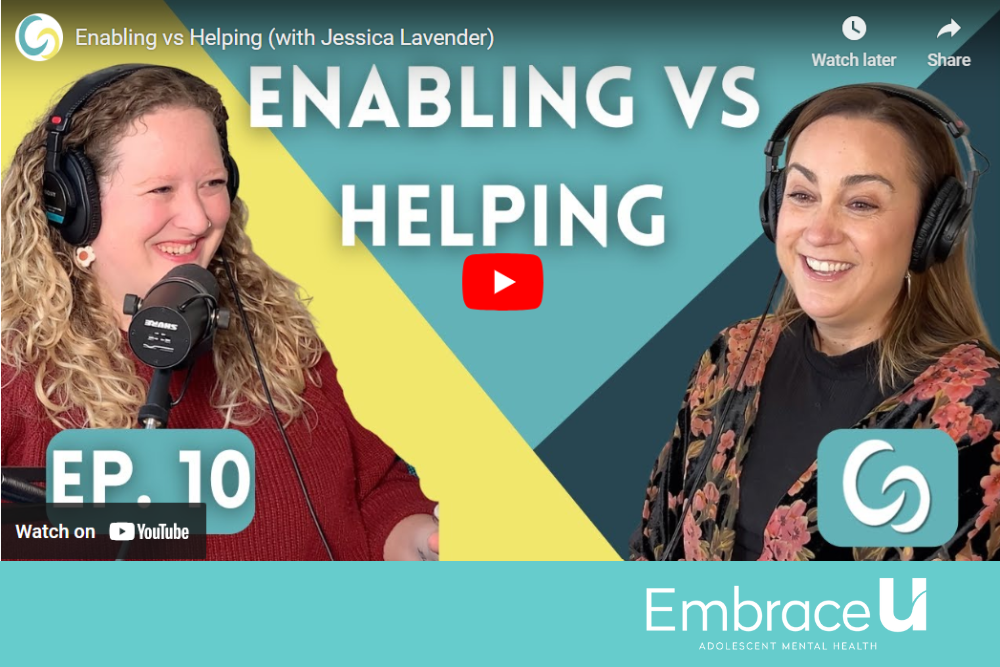Recognizing the symptoms of a mental disorder in an adolescent can be challenging. Mental disorders can impact adults and children differently. Mental health providers generally look for depressed mood or lack of interest in hobbies or recreational activities. In teens, however, a sign of mental illness could be a decline in their grades, disinterest in friends, or out-of-character irritability and sadness. When a teenager expresses thoughts of suicide it’s usually a sign that they need a professional assessment.
According to the Department of Health and Human Services, nearly 50% of adolescents experience a mental health disorder at some point in their lives. Although mental illness is common, this doesn’t undermine how significantly a mental health disorder can negatively impact a child’s life. Some of the most common teen mental disorders require treatment such as counseling and therapy in order to restore normal function. Keep reading to learn more about how mental health disorders show up in adolescents, and how you can better manage their mental health symptoms.
At Embrace U, we offer top-rated adolescent mental health care in Brentwood to help students (ages 10 to 18) better manage their mental health symptoms. We offer a wide range of teen mental health treatment, from intensive outpatient care to partial hospitalization. Our programs go beyond traditional one-on-one therapy, utilizing psychiatric assessments, group therapy and family counseling. If your child is struggling with a mental illness, help is available. Contact us today to learn more about how we can help your student manage symptoms of a mental disorder.
Common Signs of Mental Illness in Adolescents
There are several ways that mental health disorders can show up in adolescents. Mental illness among children and teens is more common than you may think. However, it’s important to understand there is a difference between struggling with a mental health condition and having a bad day. Unsure if your child is struggling with a mental illness? Below are some common signs of adolescent mental health disorders to look out for:
- Loss of interest in activities they once enjoyed
- Decline in work or school performance
- Abusing drugs or alcohol to cope with mental disorder symptoms
- Self-harming (i.e. cutting or burning themself)
- Significant changes in weight or sleep patterns
- Fracturing relationships with close friends and loved ones
If you suspect your child is struggling with a mental health disorder, consider seeking support from a mental health professional to get a proper diagnosis.
Common Risk Factors of Teen Mental Illness
It’s critical to understand that there is not a single cause of mental health disorders in teens. The likelihood that they develop symptoms intensifies as they encounter more risk factors. Recognized risks to mental health include genetic predisposition, stressful life events, family conflict, alcohol and drug use as well as socioeconomic problems. The influence of media and adherence to gender norms can further widen the gap between an adolescent’s lived reality and their perceptions or aspirations for the future. Crucial determinants encompass the quality of their home life and the nature of their relationships with peers.
Whether you have a family history of mental illness, or your child has experienced a traumatic event, there are a number of risk factors that play a role in developing a mental illness, some examples include.
- Chronic stress
- Chronic illness
- Trauma
- Family history of mental illness
- Substance abuse
- Bullying/peer pressure to fit in
- Social isolation or loneliness
Some adolescents face a higher likelihood of developing mental health conditions due to factors like living conditions, stigma, discrimination, exclusion, or limited access to quality support and services. This vulnerable group includes adolescents living in humanitarian and fragile settings, those with chronic illness, autism spectrum disorder, intellectual disabilities, or other neurological conditions. Pregnant adolescents, adolescent parents, individuals in early or forced marriages, orphans, and adolescents from minority ethnic, sexual, or other discriminated backgrounds are also at elevated risk.
While there are a range of risk factors, there are also several different types of adolescent mental health disorders. These include anxiety and depression, bipolar disorders and suicidal thoughts. If your child is struggling with a mental illness, it’s critical you seek help from a mental health professional to get a proper diagnosis and treatment plan. At Embrace U, our group therapy programs help adolescents learn healthy coping skills to better manage their symptoms.
How to Manage Your Teen’s Mental Illness Symptoms
Getting the help of a mental health professional, such as a therapist or psychiatric provider is critical to managing your teen’s mental health symptoms. An experienced behavioral health provider can help you understand not only why some symptoms are occurring, but how to develop healthy coping strategies to improve your child’s overall health and quality of life. This may include medication management, individual therapy and group therapy. In group therapy programs your teen will gain a greater sense of community with other participants who share similar experiences. It’s a great way to see what’s worked for other children and share what they are going through.
At Embrace U, we offer comprehensive, outpatient treatment programs for children ages 10 to 18 who need a higher level of care than just weekly visits with a therapist. Our participants attend therapy sessions between three and five days a week, for up to six hours a day. Children in our programs have regular meetings with psychiatric providers and therapists. Parents receive progress reports and can attend meetings to learn more about treatment and effective strategies to help their children recover from a mental health challenge.
Top-Rated Teen Mental Health Treatment Center
Now you know more about how mental health disorders show up in adolescents. You should never feel afraid or ashamed to ask for help when it comes to improving your child’s mental health and well-being. Mental illness can be extremely isolating. However, you should never feel like you are alone in your battle against mental illness. Help is available!
At Embrace U, we are a leading mental health clinic for children and teens. Our compassionate team of mental health professionals is here to help you every step of the way to better manage your student’s mental health symptoms and achieve their goals, whether that’s returning to school or improving the relationships they have with others. Contact us today to learn more about how we can best support you along your recovery journey.










